CESI strengthens international partnerships with Kenya and Ghana
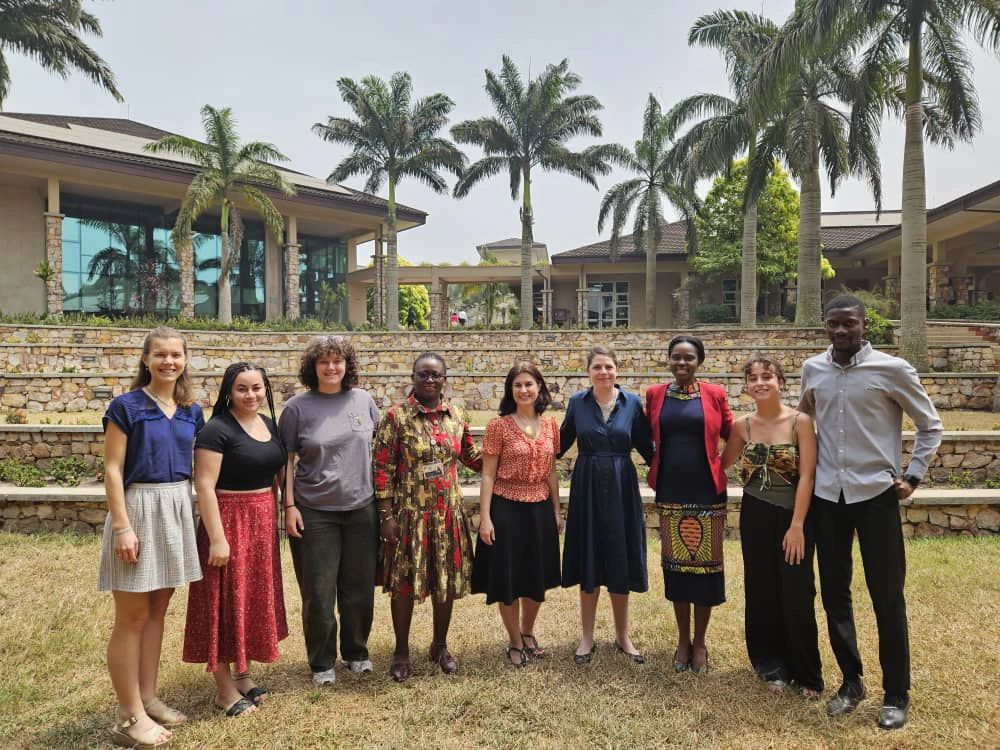
In this page :
- Current partnerships and opportunities for students
- Preparing for international mobility
- Assessment and prospects for international cooperation
From student mobility to research collaborations, CESI is opening new horizons for its students and partners. Discover the exchanges, dual degree programs, and joint initiatives shaping the future of international education in this interview with Lied Ruth, head of international relations at CESI’s regional office.
Current partnerships and opportunities for students
Does CESI have existing partnerships with universities in Kenya and Ghana ?
Yes, indeed. We have partnerships with several universities in Kenya, such as Dedan Kimathi University of Technology, Strathmore University and Technical University of Kenya.
In Ghana, our partners include KNUST (Kwame Nkrumah University of Science and Technology), and ASHESI. We are currently working on establishing a partnership with the University of Cape Coast.
Are there any specific academic cooperations or exchange programs in place ?
Yes, we have established several academic agreements with our partners. For example, , with ASHESI, KNUST, Dedan Kimathi University, and Strathmore University, we have established learning agreements that facilitate reciprocal academic exchanges for one semester. We send our students to the partner university, and they, in turn, send their students to us for exchange. This year, we hosted students from ASHESI, and for the past two years, CESI students and apprentices have been doing internships at Dedan Kimathi University’s laboratory. We have also sent students to Technical University of Kenya and ASHESI for their international mobility in research labs. This fall, a CESI student went on an academic exchange to Strathmore University.
Every year, our Summer School “BIM for Sustainable Construction” also welcomes Ghanaian students for an academic and cultural experience in France.
Furthermore, we have a dual degree program with Strathmore University. Students who complete a Bachelor’s in Computer Science can apply to continue their studies at CESI, pursuing a Master’s Degree in Computer Science, taught in English, to obtain their engineering degree in two years.
Are there partnerships for professor exchange or collaborative research projects?
Yes, absolutely. We have hosted several professors from our partner universities, such as Professor Julius Butime, Dean of the Department of Computer Science and Engineering at Strathmore University and Dr. Joseph Orero who visited several CESI campuses (Rouen, Nanterre and Strasbourg) last year to establish connections with our researchers. Through research internship opportunities, we have also forged connections with researchers at Dedan Kimathi University.
The CESI LINEACT laboratory is currently working on several project proposals with Dedan Kimathi University and the mechatronics department. Furthermore, we welcomed Professor Paul Wambua, Associate Dean at TUK, who took part in our International Week at CESI Nancy, delivering courses on embedded systems. He also visited the Rouen campus to meet with CESI LINEACT researchers and exchange ideas. We are currently hosting several interns who conduct research in CESI laboratories. A student from TUK is currently doing a research internship at CESI Arras with a researcheron the energy optimization of a nano-grid with multiple energy sources. Another student from Dedan Kimathi is at CESI Nanterre for a combined academic program and research project, and had the opportunity to participate in the Business Unit Manager option in English with CESI students.
What are the criteria for students to participate in exchanges with these partner universities?
The selection criteria are defined in collaboration with our partners. Kenyan and Ghanaian students wishing to participate in mobility programs or continue their studies at CESI must be registered in scientific or engineering programs that align with our academic programs. For example, to apply for our Master’s Degree in Computer Science, a student must be in the final year of a 4-year Bachelor’s in Computer Science. It is best if they have some knowledge of French but it is not required to apply. An A1 level of French is required at the start of the program.
For CESI students who wish to go abroad, we ensure that the department they wish to take courses in with the partner university has courses in lign with their studies (e.g., Computer Science, Civil Engineering, Industrial Engineering, or Mechanical Engineering), that they have a good level of English, and will be real ambassadors of our institution while they are abroad.
Are there any scholarships or financial support available for students?
Yes, for students from Kenya and Ghana who wish to come to CESI for exchange, there are cross-mobility scholarships through a program managed by the Ministry of Higher Education. For example, we were able to offer scholarships to 7 Kenyan students to help cover their living expenses in France, including round-trip airfare and administrative assistance from the embassy. We hosted 3 Ghanaian students in cross-mobility who benefitted from this program. An important condition of this program is to demonstrate that we also send our students to the partner countries and that mobility is reciprocal. We are very pleased to see the growing interest among our students for these destinations, especially to our partner universities.
Our students can apply for regional scholarships and the Erasmus+ program. Additionally, Ghana and Kenya have been chosen as priority destinations for these scholarships.
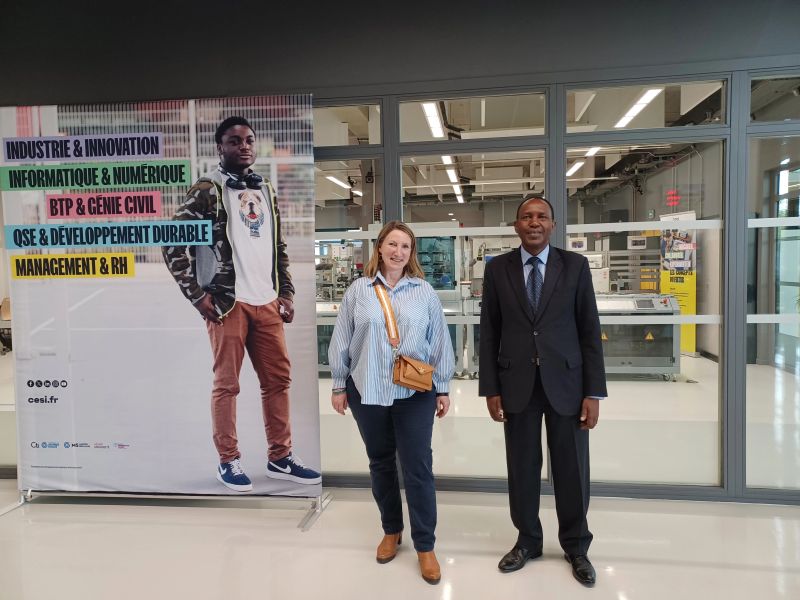
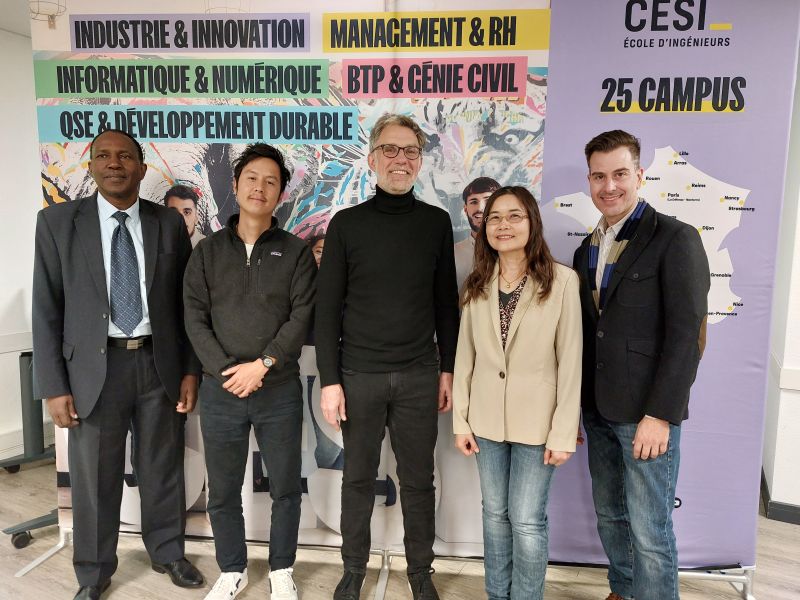
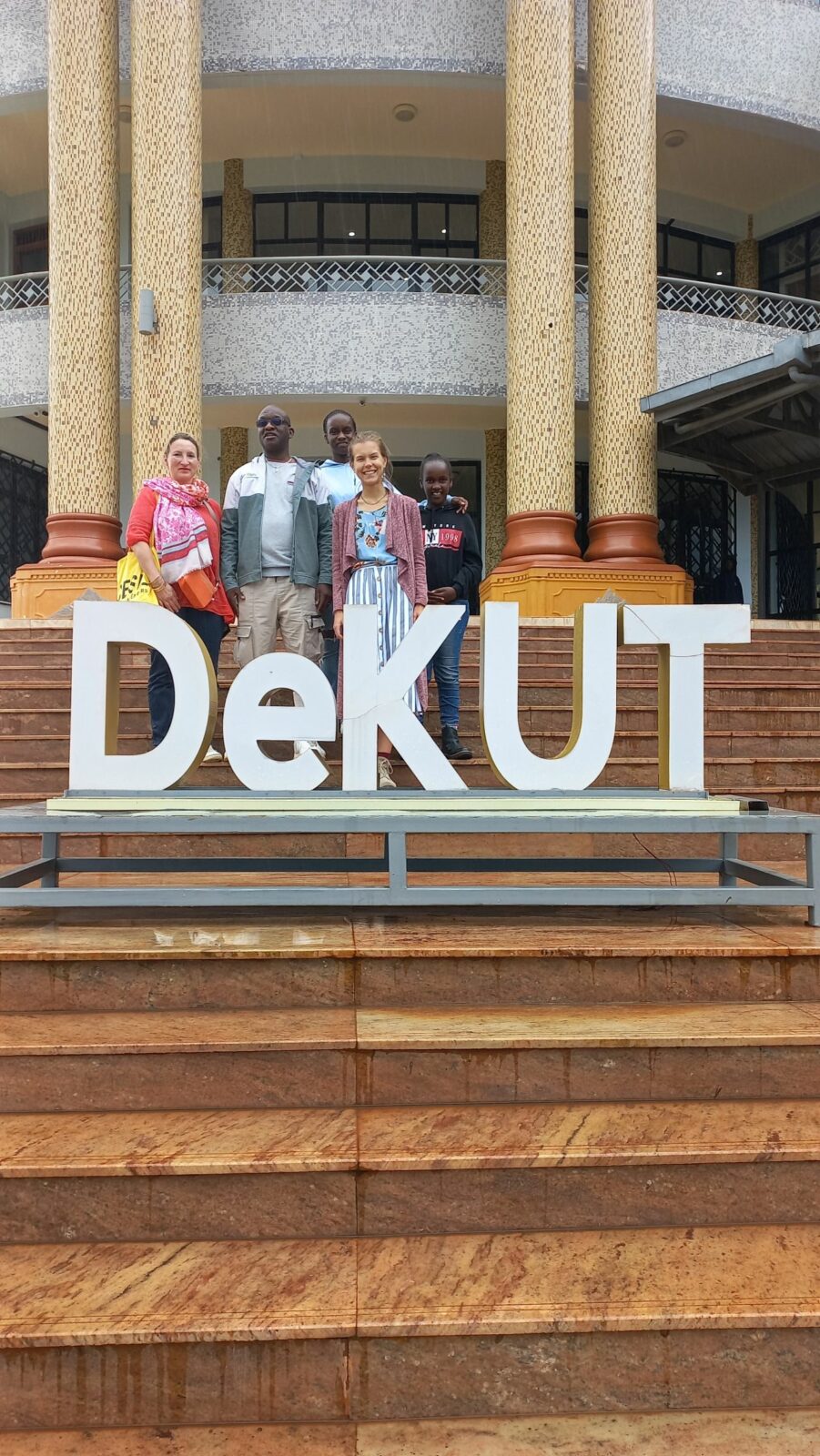
Preparing for international mobility
What administrative procedures must CESI students
follow when going on an exchange program?
Students must apply for a visa at the embassies located in Paris for their destination country. It is strongly recommended to start the process several months in advance. They should also check the health guidelines on the Ministry of Foreign Affairs website, as certain vaccines, such as yellow fever, hepatitis A, or B, are highly recommended.
If students are going on an internship, they will also need an internship agreement, and they may apply for an Erasmus+ scholarship. Students must also get approval for the courses or tasks from their academic advisors to ensure the semester abroad is validated.
Are the credits earned abroad easily transferable?
Yes, absolutely. Students on study abroad at our partner universities take courses as full-time students and earn 30 ECTS credits. This number of credits complies with CESI’s requirements for a semester of international study.
Are there any welcome programs for international students at these partner universities?
Yes, most of our partner universities organize integration weeks for international students before the start of their courses. This includes assistance with finding accommodation. For example, ASHESI, Strathmore, and Dedan Kimathi offer university residences on campus or work with local partners to find housing near the campus.
Assessment and prospects for international cooperation
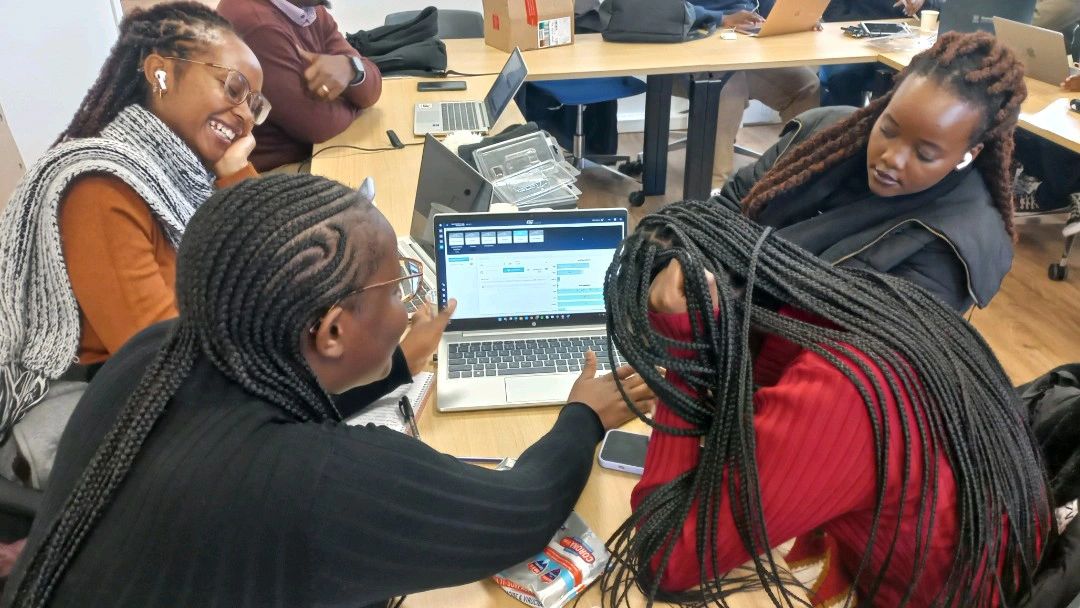
How do you evaluate the success of these cooperations?
Feedback from students who have participated in exchanges has been very positive. They are happy with their experience both academically and personally. They discover new cultures and countries, improve their level of English, and gain valuable professional experience.
This year, we sent 10 students to Kenya for academic exchange and research internships, and 5 students to Ghana. The students are very satisfied with their stay, and we have noticed a growing interest in these destinations each year.
What are the prospects for the evolution of these partnerships in the coming years?
We want to continue to develop these partnerships and collaborate with the embassies to welcome more students for academic exchange using the cross-mobility scholarship program. We are also exploring the possibility of signing a dual degree program with the Technical University of Kenya. We hope to host students from KNUST for the first time for academic exchange. Additionally, we are looking to expand our partnership with ASHESI to offer further study pathways. Finally, we are considering applying for Erasmus+ MIC funds to provide scholarships for Kenyan and Ghanaian students who wish to come to study at CESI for a semester.
We will continue to maintain strong links with our partners, especially in the field of collaborative research. A project is currently being studied with Dedan Kimathi University, and we hope to welcome more professors as visiting professors to promote pedagogical exchanges and the teaching of new practices.